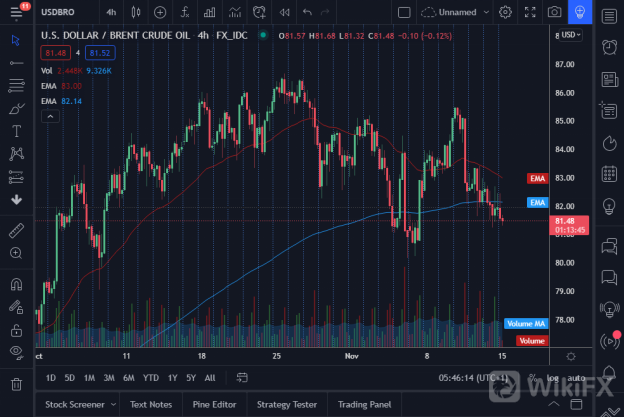
The recent increase in the price of oil worries the U.S. President, Joe Biden, as he urges OPEC+ to increase oil production. Biden expressed his worries at the G-20 summit in Rome. He said the surge in energy costs is hurting working-class families. He also made it known that the world can't immediately stop using oil and said OPEC and Russia need to pump more oil.
Oil price, which has been rising since last year, hit its three-year high in October 2021. This has caused a lot of discomfort for average people as the price of energy and gasoline skyrocketed. This worried President Biden, as he called OPEC+ to pump more oil to ease the increase in the cost of oil.
“On the surface, it seems like an irony,” Biden said of simultaneously calling on major oil producers to pump more as he heads to the COP26 climate change summit. “But the truth of the matter is … everyone knows that idea that we're going to be able to move to renewable energy overnight … it's just not rational,” he said.
But OPEC and its allies are still standing firm on boosting crude output quotas by a modest 400,000 b/d for December, shrugging off intense lobbying from the US and other consuming countries for more volumes to bring surging oil prices down.
“We still believe what we are doing is the right job,” Saudi energy minister Prince Abdulaziz bin Salman said during the OPEC+ meeting that was held on Nov. 4.
The OPEC+ ministers had been signaling that they saw no reason to deviate from their agreement, viewing the global natural gas shortage as the reason for rising oil prices.
“We are expecting that, as usual in the first quarter, to have a surplus in the balance of supply and demand,” UAE energy minister Suhail al-Mazrouei said. “The 400,000 b/d we are adopting as a resolution is going to take us smoothly to that position.”
OPEC+ reluctance to increase oil production may prompt the US to lead a coordinated release of stocks from strategic reserves, which President Joe Biden has hinted at, albeit even he conceded any price impact would be marginal.
U.S. Energy Secretary Jennifer Granholm has said that the Energy Information Administration forecasts gasoline prices slipping to $3.05 a gallon in December, which is probably not a level, she said, that the strategic reserve would come into play. But the forecasts could change, she said.
Granholm said Biden would make any decisions on tapping the reserve, which is held in a series of caverns on the Texas and Louisiana coasts.
Furthermore, oil inventory has been on the rise for the past few weeks. Recent industry data has pointed to a big build in crude oil and distillate stocks in the United States, the world's largest oil consumer.
Edward Moya, senior analyst at OANDA said, “Crude prices are declining after the API reported the sixth straight week of crude oil inventory builds and as the Biden administration exhausts every possible plea to OPEC+ members before tapping their Strategic Petroleum Reserve.”
“World leaders are running out of cards to pressure OPEC+ and that should mean whatever dip that comes from tapping strategic reserves from China or the US will likely be bought into.”
President Joe Biden, speaking at a climate summit in Glasgow, blamed a surge in oil and gas prices on a refusal by OPEC nations to pump more crude.
Technically, Brent crude oil's price is due for a retracement as the price failed to rally back to the recent high. Brent oil price near $87 per barrel in October, its highest price in three years, and failed to rally back to its recent high in two different attempts. The first attempt was when the price fell to $82.50 from $86.68, according to data received from TradingView. Price failed to rally to its recent high, thereby falling halfway from $85. Price fell from $85, as shown on the 4hr chart, to $80, but also picked support at $80 and rallied back up to $85, creating its first higher-low.

Price will likely create a range between $85 – $80 on the daily, but a break below $80 will be the beginning of a new downtrend on Brent oil. The price of Brent oil might likely fall to $75 per barrel if the $80 support gets broken.
Leave a Reply